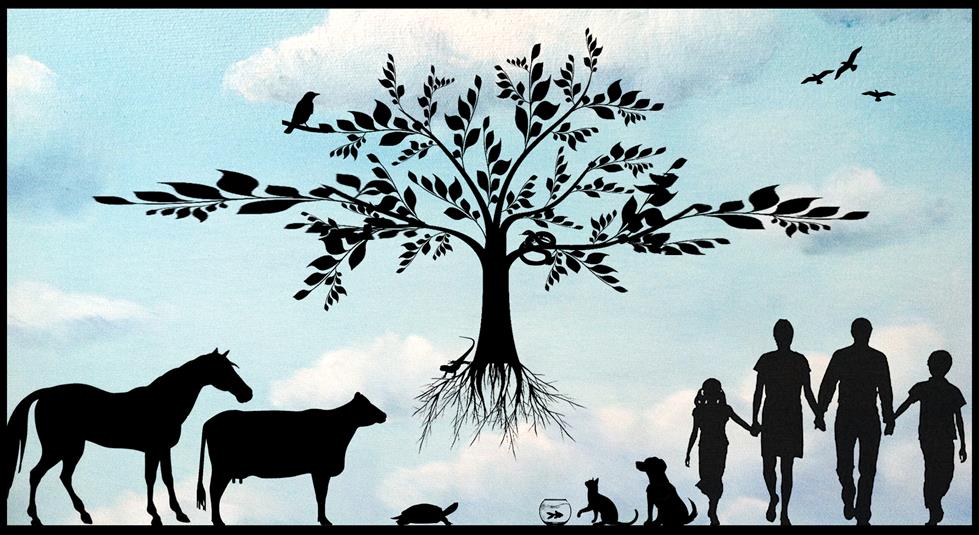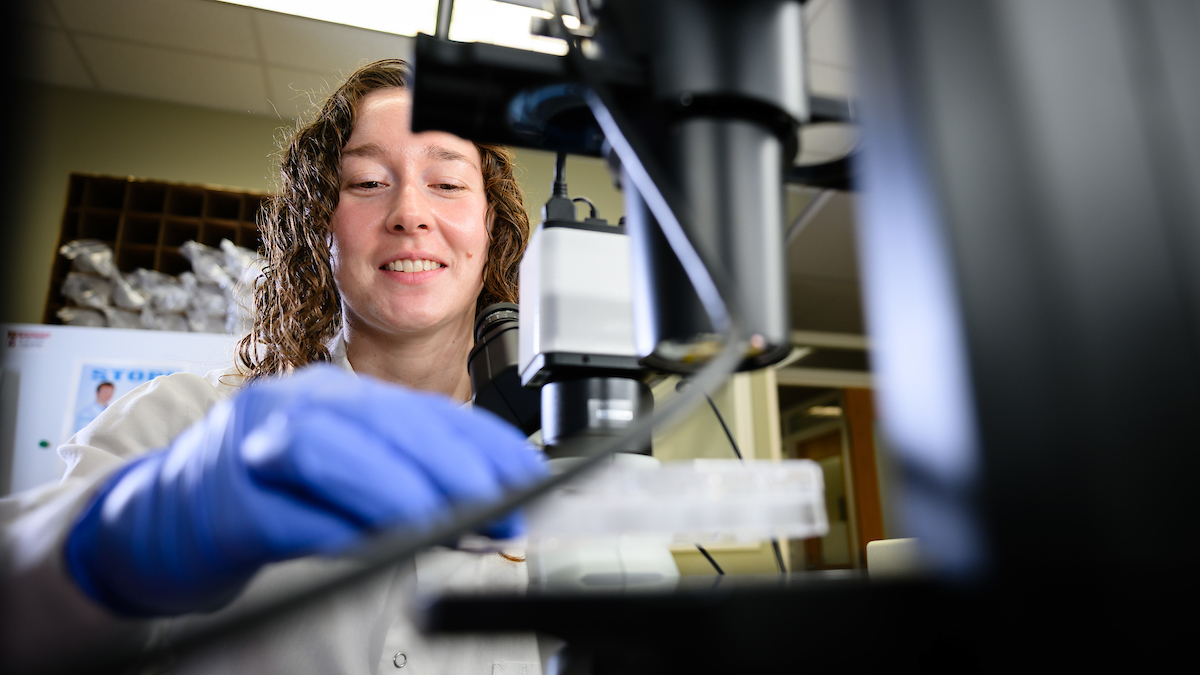One Health/ One Medicine Research at the NC State College of Veterinary Medicine

“Between animal and human medicine there is no dividing line – nor should there be. The object is different but the experience obtained constitutes the basis of all medicine.” – Rudolf Virchow (1821-1902)
One Health—the concept describing the complex interrelationship involving ecosystem health and the health and well being of wildlife, domestic animals, and humans is the focus of the research and extension work of North Carolina State University’s College of Veterinary Medicine.
The NC State CVM and its centers, institutes, programs, and individual faculty members and students contribute to the health of the environment, animals, and people on the local, regional, national, and international level.
Several CVM centers and laboratories are engaged in One Health research, including:
Center for Comparative Medicine and Translational Research with its mission to promote scientific discovery and facilitate its clinical application to achieve the goal of improving the health of animals and humans. Research cores: Allergic Diseases, Biostatistics, Clinical Genomics, Emerging & Zoonotic Diseases, Mucosal Pathophysiology, Oncology, Stem Cells. CCMTR website >
Center for Chemical Toxicology Research and Pharmacokinetics with its mission to perform scientific research on the structure and function of skin focused on transdermal drug delivery, cutaneous toxicology, metabolism and pharmacokinetics employing innovative animal models and other pharmacokinetic research. Research interests: Percutaneous absorption of topically applied drugs and chemicals; Nanotoxicology; Dermal absorption and cutaneous toxicology of chemical mixtures; Transdermal drug delivery; Toxicology of military chemical vesicants; Chemical industry toxicology studies; Tissue residues and pharmacokinetics.
Aquatic Epidemiology and Conservation Laboratory with its mission to explore and work to resolve problems affecting the health and conservation of aquatic ecosystems and aquatic fauna. Research interests: Freshwater mussel conservation; Aquatic ecosystem health; Seafood safety.
AECL website >
Breen Laboratory at NC State with its mission to explore the cellular genomics of canine cancers and investigate evolutionarily related genetic aetiology shared with human cancers. Research interests: Canine karotype, Molecular cytogenetics, Array-CGH analysis of canine tumors, Gene expression analysis, Canine brain tumors, Integrated genome mapping, Comparative and wildlife genomics. Breen lab website >
Thakur Molecular Epidemiology Laboratory with its mission to improve pig and human health by reducing the burden of bacterial food borne pathogens. Research interests: Epidemiology of bacterial pathogens at the pre and post-harvest levels; Molecular characterization of antimicrobial resistance in food borne pathogens; Genotypic characterization of bacterial pathogens using molecular tools; Phylogenetic analysis of bacterial pathogens; Develop diagnostic tools for rapid pathogen detection and quantification. Thakur lab website>
Global health connections. With its focus on achieving equity in health for all people worldwide, global public health covers many fields including veterinary medicine and is often intertwined with the One Health concept. At the CVM, programs and collaborations related to global public health include CVM International Programs, and participation in the Triangle Global Health Consortium, the North Carolina One Health Collaborative, and the Global Health Initiative at NC State.
[section_subtitle] In Search of Answers [/section_subtitle]
A series of video discussions of One Health / One Medicine studies by CVM researchers.
One Medicine: Connection between animals and humans
Cancer Research at NC State College of Veterinary Medicine
Does the Sp2 gene hold a clue to human cancer cells?
Oncology research in veterinary medicine
Canine bone marrow transplants at NC State CVM
Learnings from the NC State Canine Bone Marrow Transplant Program


